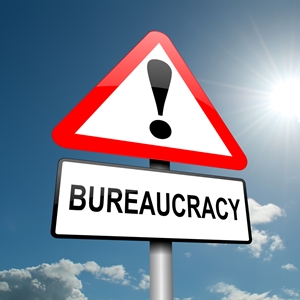
The Australian Federal Government has released its 2023 budget plan and taxpayers are likely eager to know how it will affect them. This brief summary of the most important points will help you understand the main provisions in the budget.
The budget’s most impactful points
Instant asset write-off
Small businesses will be eligible for the instant asset write-off threshold which will temporarily rise to $20,000. This will allow businesses with turnover of up to $10 million, to write off the value of new equipment up to the value of $20,000. To be eligible, any purchases must be used or installed ready for use between 1 July 2023, and 30 June 2024.
The $20,000 threshold will apply on a per asset basis, so small businesses can instantly write off multiple assets.
The threshold for write-offs on eligible assets had been due to revert to $1000 at the end of the 2023 financial year, however the federal budget increased this rate in a 12-month extension.
GST Compliance Program extra funding
An extension to the ‘GST compliance program’ is among the policy changes from the federal budget. The aim of this program is to raise $3.8 billion in revenue over the next four years by ensuring “businesses meet their tax obligations, including accurately accounting for and remitting GST, and correctly claiming GST refunds”, according to the budget papers. Under this policy, the Australian Taxation Office (ATO) will be provided an extra $588 million over four years to continue with “a range of activities that promote GST compliance”.
Personal Income Tax Compliance Program
The ‘Personal Income Tax Compliance Program’ will be extended, and its powers expanded. The program, which targets individuals, will provide the ATO $89.6 million and $1.2 million to Treasury for the extension. The program will continue until 1 July 2027 after being extended for two years, from 1 July 2025 and, additionally, will have its scope expanded from 1 July 2023.
The ATO will use the extension to continue delivering a combination of proactive, preventative and corrective activities in areas of non-compliance. This will include targeting emerging issues such as deductions relating to short-term rental properties to ensure they are genuinely available for rent.
Less expensive medicine
The new budget ensures many common medicines that treat chronic conditions will receive drastic price cuts. Over 300 prescriptions meant to manage conditions such as high blood pressure, high cholesterol and heart disease are included. General practitioner visit costs will also be reduced.
This is meant to save those who use these medicines over $1.6 billion in the next four years and decrease the frequency of doctor visits, according to health minister Mark Butler, per Forbes.
Increase to the jobseeker rate
The current jobseeker payment will increase from $50 daily because of a $40 bonus payment each fortnight.
The federal, ParentsNext program will end. This affects roughly 100,000 parents with compulsory mutual obligations.
The age at which an individual qualifies for higher benefit payments is also decreasing from 60 to 55. This measure is a response to increasing challenges for women jobseekers at risk of homelessness, as said by federal treasurer Jim Chalmers.
Energy rebates for low-income Australians
To combat rising energy costs, small businesses, pensioners and others who receive government support will be eligible for a one-time payment of up to $500. The amount will vary by territory and state.
The Federal Government also hopes to better control global increases in utility bills caused by major world events such as the Russian invasion of Ukraine. They aim to reduce Australia’s reliance on gas and coal and introduce a national net zero authority.
Taxes
The official report claims there will be tax breaks for small businesses and build-to-rent housing suppliers to help offset Australia’s housing crisis. Industry experts expect the cuts will create 150,000 rental properties over 10 years.
Specifically, the withholding tax rate for build-to-rent projects will be reduced from 30% to 15%. The annual capital works tax deduction depreciation rate will also increase from 2.5% to 4%.
What the budget addresses most
As anticipated, this federal budget does not include any changes related to structural tax reform. The big winners in the new budget are patients, jobseekers, low-income Australians and anyone who is in need of housing. There are many more provisions in the budget you may wish to consider, as well. For the full official federal budget report, you may use this link in case you would like to read more.



